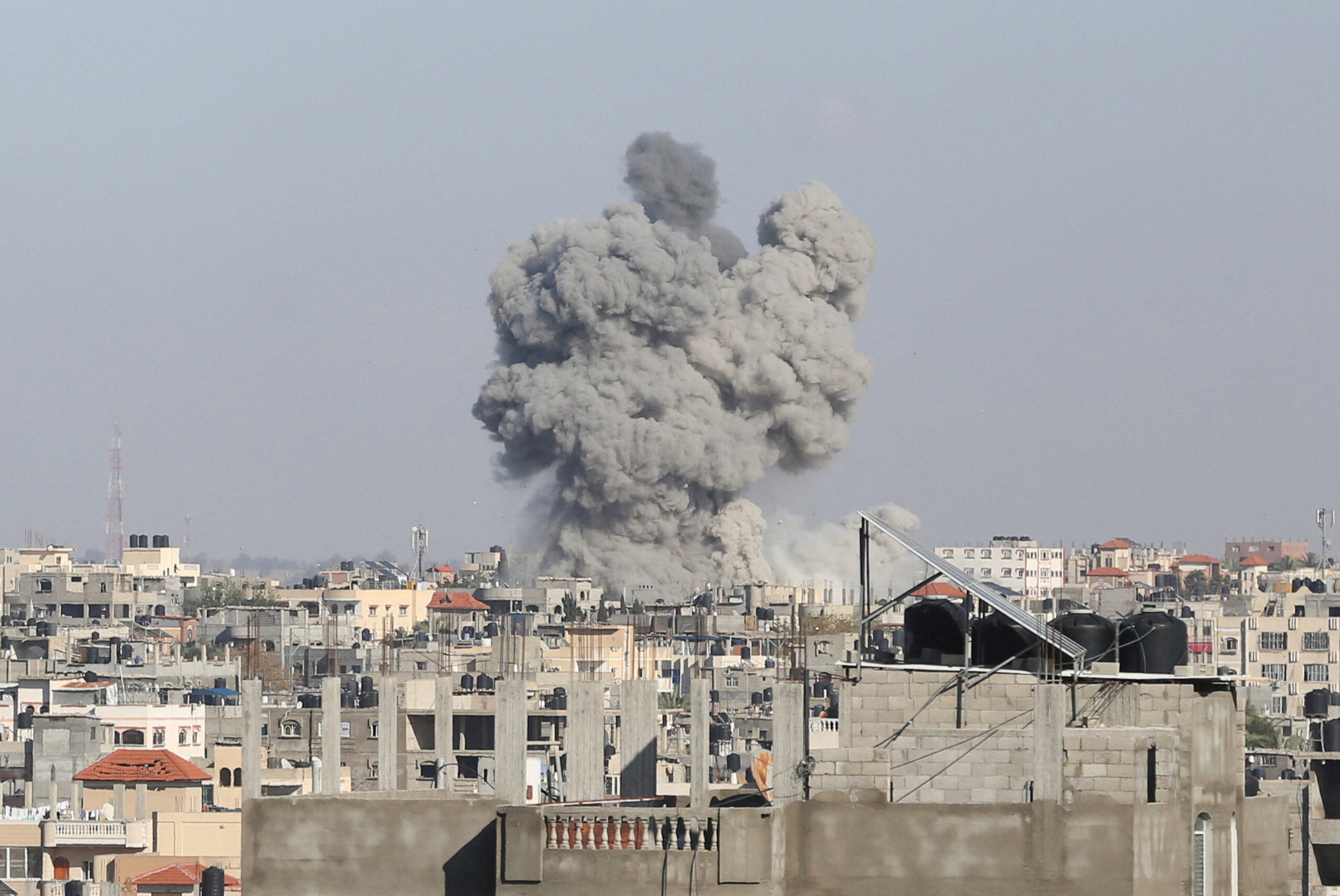Global crude oil prices are expected to rise by roughly 4% by the end of the week
Despite a slight decrease on Friday, oil prices were expected to rise by almost 4% this week due to an…

Smoke rises following Israeli strikes, amid the ongoing conflict between Israel and the Palestinian Islamist group Hamas, in Rafah in the southern Gaza Strip May 6, 2024. REUTERS/Hatem Khaled
Tuesday’s attack on Rafah in Gaza by Israel caused an increase in oil prices, but the cease-fire talks with Hamas remained unresolved. At 06:35 GMT, U.S. West Texas Intermediate (WTI) crude futures increased by 7 cents, or 0.09%, to $78.55 per barrel, while Brent crude futures gained 9 cents, or 0.11%, to $83.42 per barrel. According to Yeap Jun Rong, IG’s market strategist, “Oil prices opened up this morning, with market participants pricing in geopolitical tensions to potentially drag for longer due to some roadblocks in the ceasefire talks between Israel and Hamas”.
In addition, Yeap noted that market players will be anticipating the release of data regarding U.S. crude inventories. A preliminary Reuters poll released on Monday indicated that a decline in U.S. crude oil and product stockpiles was predicted for the previous week. Based on projections from analysts, the weekly drop in oil inventories could have been as much as 1.2 million barrels on average. A stronger dollar limited gains in oil futures during the session because it made crude more expensive for traders holding other currencies. With the greenback compared to six major peers, the dollar index was up at 105.25 the last time it was checked.
Monday’s closing oil prices partially reversed last week’s declines. Because of the market’s focus on the weak U.S. jobs data and the potential timing of a Federal Reserve interest rate cut, both contracts had posted their steepest weekly losses in three months. On Monday, the militant Palestinian group Hamas accepted a proposal from mediators for a ceasefire in Gaza; however, Israel declared that the terms did not satisfy its demands and proceeded with strikes in Rafah, intending to continue talks towards a deal.
Over one million Palestinians have sought refuge in Rafah, which is located on the southern edge of Gaza after Israeli forces launched air and ground strikes on the city. As a result, residents were ordered to evacuate certain city areas. Oil prices have been supported by the lack of a settlement between the parties to the conflict, which has lasted for seven months. Investors are concerned that a regional escalation of the war will disrupt Middle Eastern crude supplies.
Prices were also helped by Saudi Arabia’s decision to increase the official selling prices for the crude it sold to Asia, Northwest Europe, and the Mediterranean in June, which suggested that demand would likely be high this summer. The top exporter in the world increased the price of its flagship Arab Light crude oil to Asia in June, pushing it above the Oman/Dubai average to $2.90 per barrel—the highest level since January and above traders’ expectations, according to a Reuters survey.
Advertisement